Coronavirus: Wild animals enjoy freedom of a quieter world
- Published
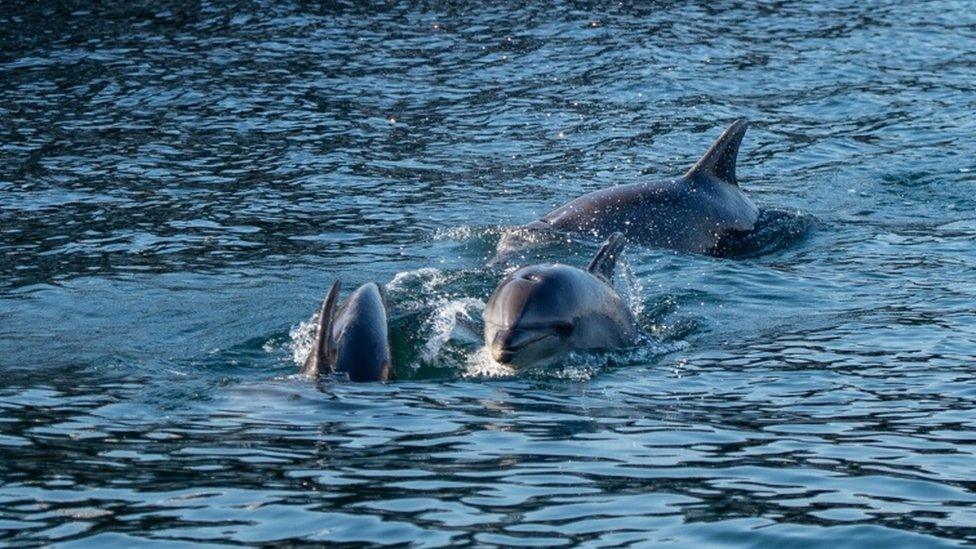
Three types of dolphins including bluenose can be found in the Bosphorus, Istanbul
Coronavirus lockdowns globally have given parts of the natural world a rare opportunity to experience life with hardly any humans around.
Animals in urban areas are exploring emptied streets and waterways, and delighting human inhabitants along the way.
While many of these are not unique sightings, the human restrictions due to the coronavirus pandemic seem to have given animals the confidence to go deeper into our cities and stay for longer.
Others are enjoying having nature reserves and parks all to themselves, and some authorities report a boom in wildlife while tourists are away.
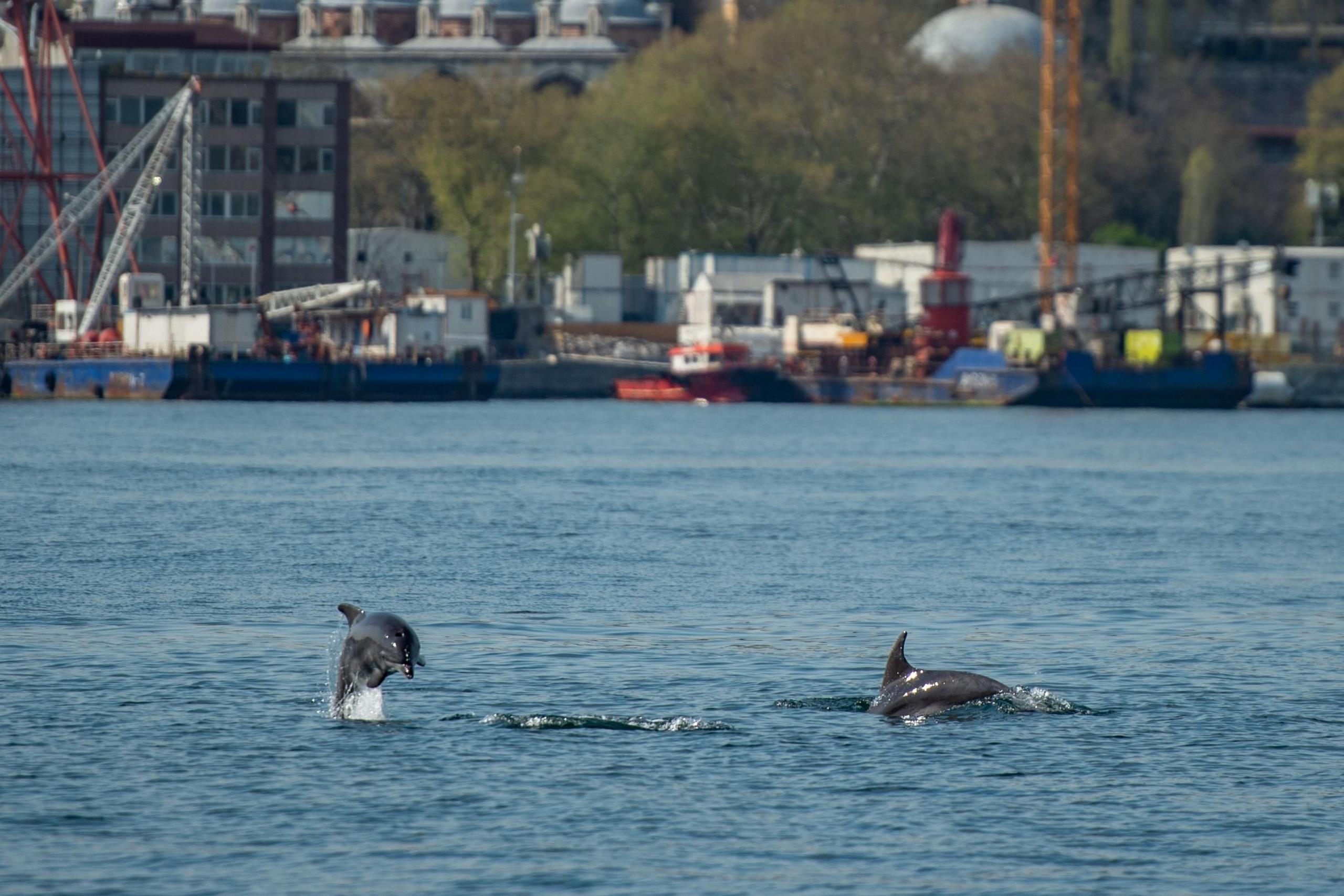
Residents of Istanbul say dolphins are coming further up the Bosphorus than usual
The Bosphorus in Istanbul, Turkey is normally one of the world's busiest marine routes. Huge tankers, cargo ships and passenger boats criss-cross the straits that cut the city in half 24 hours a day.
Now, with a lull in traffic and fishermen staying at home during the city's lockdown, dolphins are swimming and jumping in the waters.
It's not uncommon to spot the tell-tale dots of a dolphin from the city's quays, far away in the distance. But videos posted by residents of the animals swimming near the banks show how much closer to the city they're happy to come now.
Allow X content?
This article contains content provided by X. We ask for your permission before anything is loaded, as they may be using cookies and other technologies. You may want to read X’s cookie policy, external and privacy policy, external before accepting. To view this content choose ‘accept and continue’.

Dolphins "are coming closer to the edge of the water as the terror of uncontrolled anglers on the shoreline has temporarily stopped," a ship spotter who has photographed dolphins in the past told AFP.
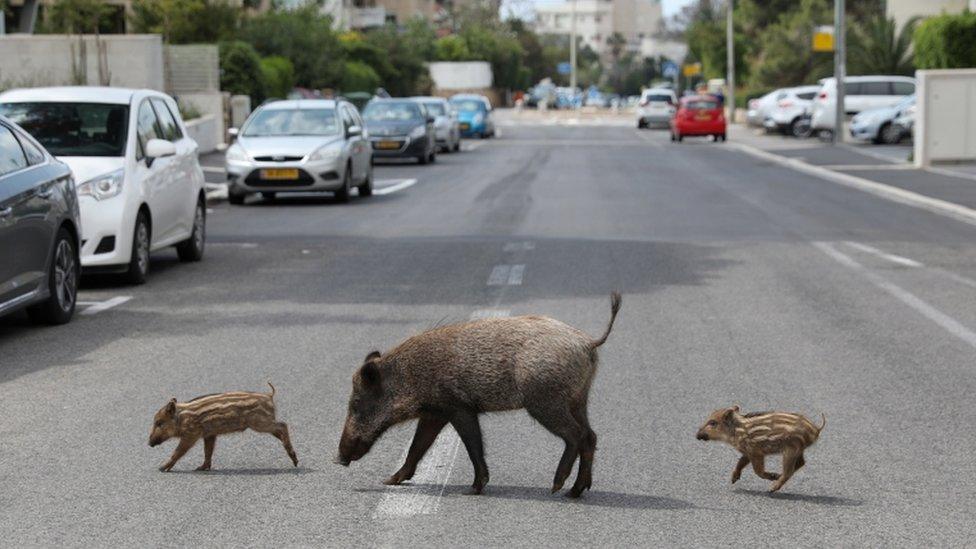
Wild boar in Haifa, Israel are enjoying food left in residents' rubbish bins
"Wild boars take over Haifa as residents stuck inside, external," said the headline in Israeli newspaper Haaretz.
Boars were seen snuffling and foraging for food around the city of Haifa before the pandemic, but the absence of humans has encouraged them further, residents say.
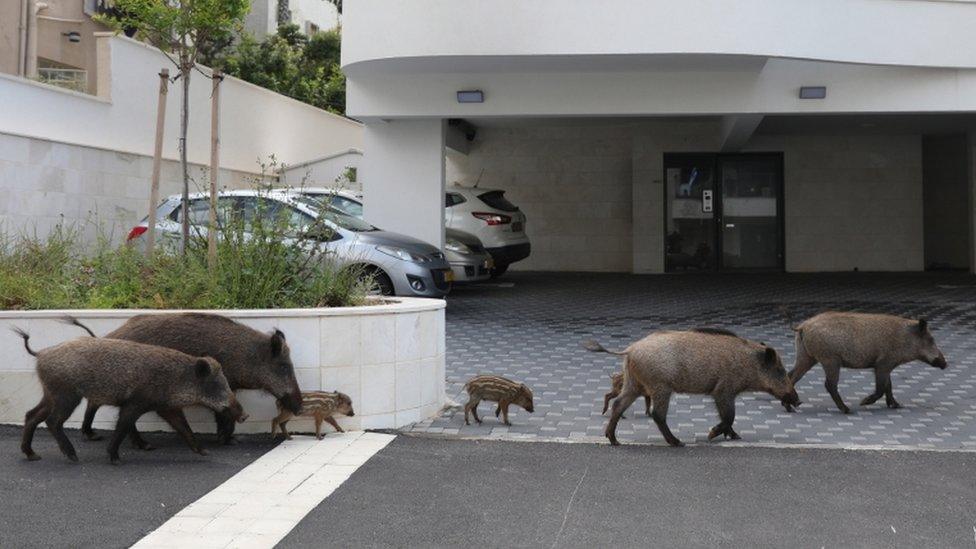
Some groups feed the boar, but others want them to be removed
The issue is now so serious that local officials held a Zoom meeting to discuss the expanding population.
"I'm scared that after the coronavirus passes, the boars will have gotten used to coming every day, every night, every hour," Yaron Hanan who is campaigning for a crackdown on the animals told Reuters, external.
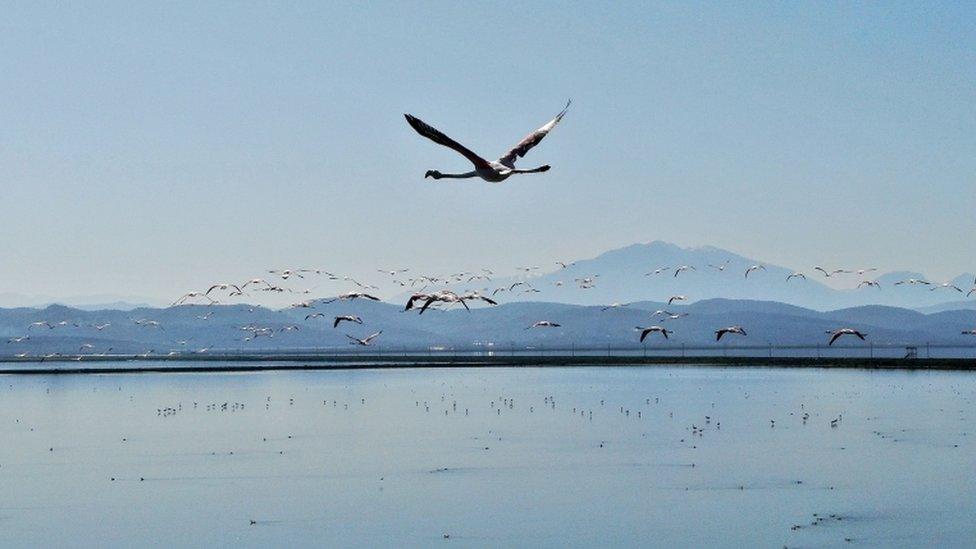
"It's time for love," an environmental expert said about flamingos arriving in Albania to mate
However some species are enjoying solitude in previously busy natural reserves or parks.
In Albania, pink flamingos are flourishing in lagoons on the country's west coastline, where numbers have increased by a third to 3,000, park authorities told AFP.
Thousands have been seen soaring over the waters at Narta Lagoon where they go to mate after flying from Africa and the southern Mediterranean.

You might also like:
Nearby olive oil and leather processing factories that have been accused of polluting the waters are closed, and the traffic that usually congests a road 500m away is absent, creating quiet for the birds.
Couples have been "moving a little further into the lagoon and are now starting courtship rituals," said Nexhip Hysolakoj, the head of the Vlora protected area.
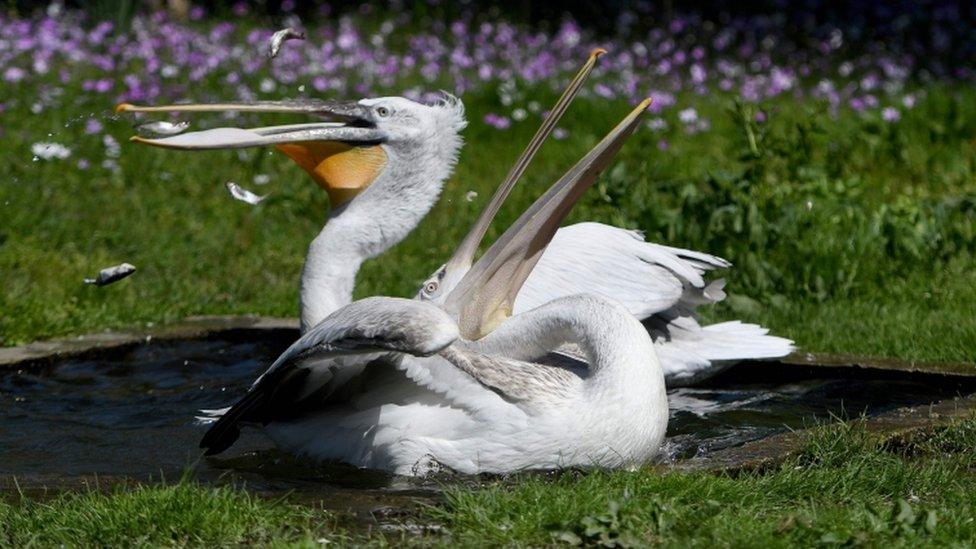
Dalmatian or curly pelicans are known for the ruffle of feathers on their heads
And in Divjaka National Park, 85 pairs of curly pelicans are nesting. The usual 50,000 monthly tourists are keeping away, creating quiet in the area where officials hope a population boon will now happen.
In Thailand, a herd of 30 dugongs was caught on camera swimming, external in the Hat Chao Mai National Park where tourism has ground to a halt.
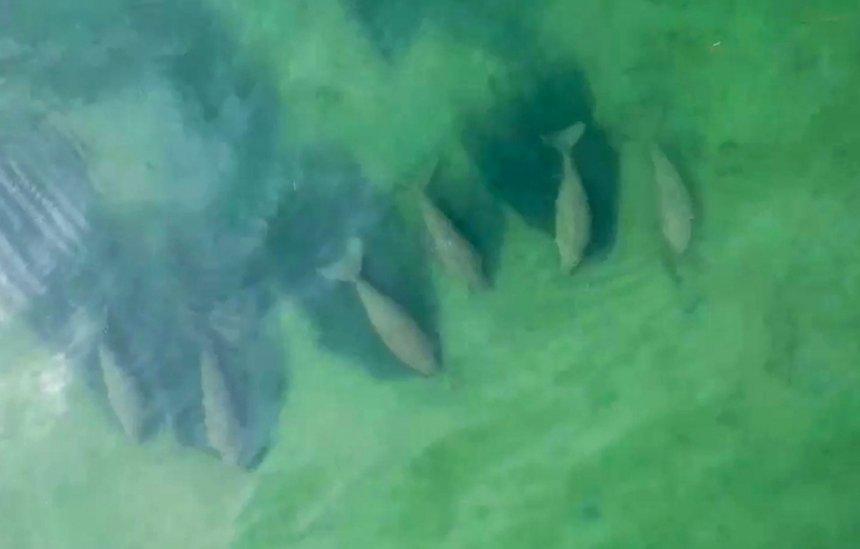
The Hat Chao Mai National Park caught a herd of dugong on video
The dugong, also known as sea cow, is classed as a vulnerable species and can often fall victim to fishing nets or suffer due to water pollution.
The national park has been posting videos on Facebook of large swarms of fish and other species, and says there has been a revival in wildlife since the pandemic began.
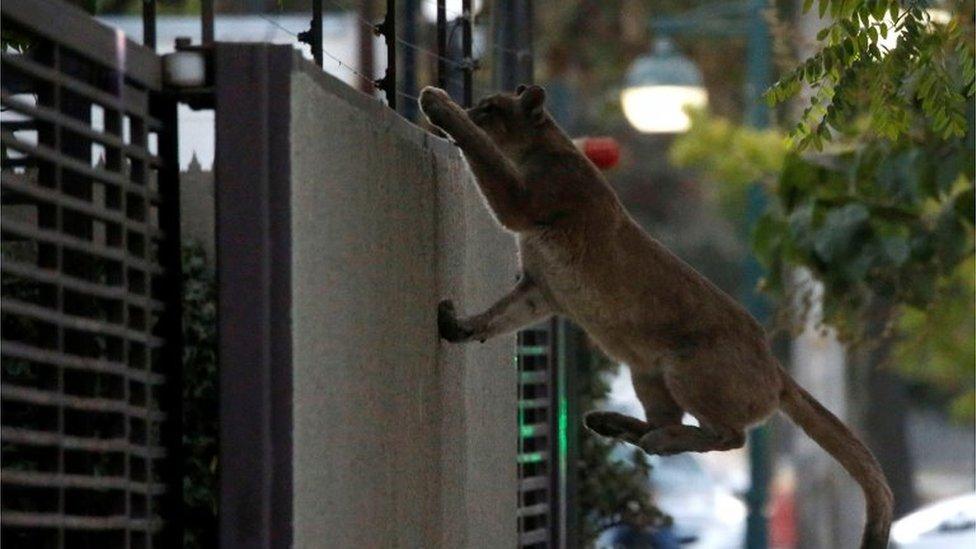
The first cougar to be spotted in Santiago was snapped jumping onto a wall
However some animals enjoying new adventures aren't able to stay around for long.
Several cougars found wandering the streets of Santiago, Chile were captured and released back to their natural habitats.
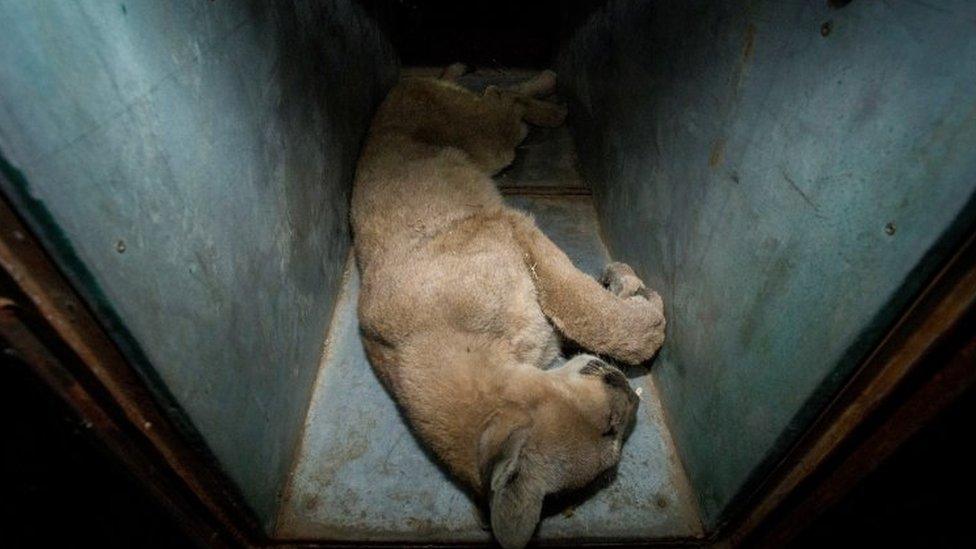
One of the big cats was found inside an apartment complex.
"They sense less noise and are also looking for new places to find food and some get lost and appear in the cities," Horacio Bórquez, Chile's national director of livestock and agriculture service, said of the animals.
The curious goats have been spotted eating flowers and hedges in people's gardens
And who could forget the famous Kashmiri goats of Llandudno?
They enjoyed the deserted town in Wales and had a scamper around last month. Some even helped themselves to garden flowers and hedges.
But not all creatures are benefitting from the coronavirus lockdown.
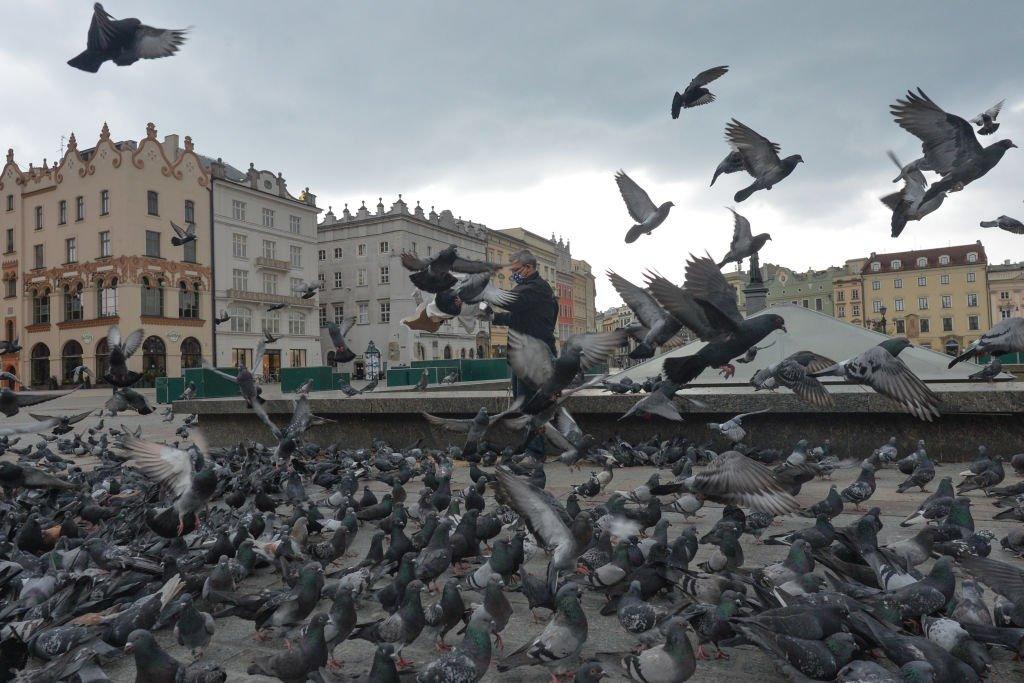
Members of Krakow's Animal Welfare Organisation are feeding the city's pigeons daily
Europe's pigeons risk starvation, warns an animal rights group in Germany, external. That's because the humans who normally feed them or drop morsels of food on the streets are stuck at home. The group, while acknowledging that pigeons are a problem for many cities, says they should not be allowed to die a painful death.
In Krakow, Poland, one animal welfare organisation is coming out specially to feed the flocks abandoned for the time being.
All images copyright.